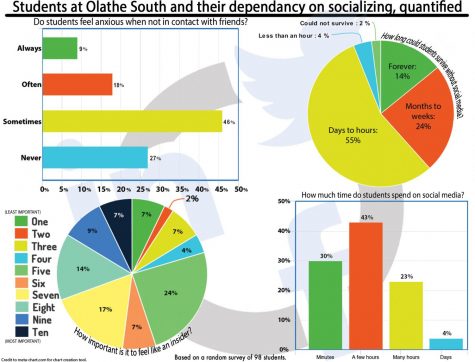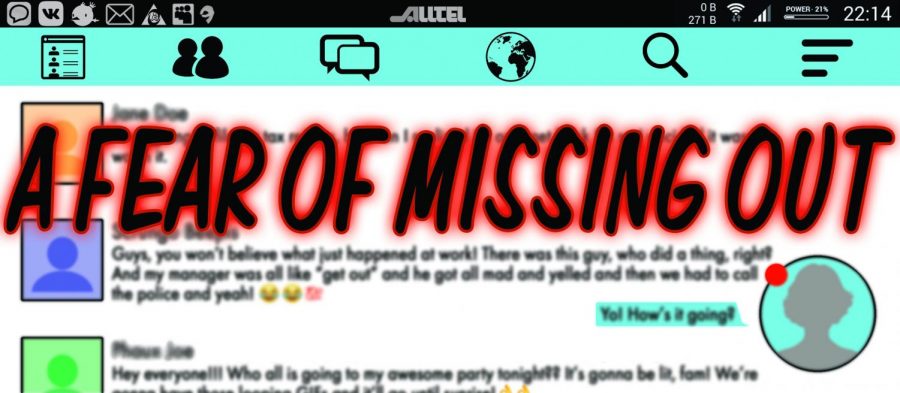Fear of missing out has negative effects
May 9, 2018
FOMO, the fear of missing out, is defined by Dictionary.com as “a feeling of anxiety or insecurity over the possibility of missing out on something, as an event or an opportunity.”
Many people are or have been experiencing FOMO, which starts to develop when people are constantly on the internet.
PC Tech Magazine said that 56 percent of people experience FOMO.
FOMO affects people in an emotional or mental way rather than a physical way, such as people feeling depressed or lonely when they think that they are missing out on something.
With current and new social media platforms, FOMO is a constant thought in the backs of people’s minds, seeing as connecting is just a few taps away.
People also start to feel the effect of FOMO when they are given a few options of what they can do.
A recent study conducted by Carleton and McGill University had students keep a journal and were trying to discover if FOMO is linked to certain personality traits. They found that personality traits don’t affect how people experience FOMO.
The effect that FOMO has on people is that it has people feel out of touch and left out, or they feel the need to be constantly doing something that they can post on social media.
In a study published in “Computers in Human Behavior,” Andrew Przybylski found that people high in FOMO “feel less competent, less autonomous, and less connected with others than people who don’t worry about being left out.”
An article titled “FOMO” by Dale Gaughan said, “The fear of missing out could serve as a mediator linking deficits in psychological needs to social media engagement,” meaning that social media could be the cause of people feeling the need to be constantly in the loop.
Many millennials need to be in the loop so much that they admit to using their phones while in the bathroom.
The article also says that people are using their FOMO to try new things.
This could be a good thing because it has people experiencing different things, but they aren’t doing it for the experience they are doing it for the post to prove that they were doing something.
“The Science behind FOMO” by David Lopera on Innovation’s website stated, “When individuals experience FOMO, it registers a stress signal in the brain similar to that of being excluded from activities.”
The brain is affected by the stress of trying to be up-to-date with all the news and posts that are constantly being posted.
The article continues to explain that when someone is being left out, he experiences signs of distress in the brain.
In the case of FOMO, when someone feels like he is missing out, the brain sends signals of distress.
An article on Sciencealert.com said that FOMO “triggers negative emotions like boredom and loneliness, which has an impact on someone’s psycholoical well-being.”
People who have begun to experience FOMO are starting to ask if there is a cure.
Lopera said that there is not a real solution, but that FOMO shows how much people rely on each other and how connected humanity is.
Other sources say that the solution to FOMO is to take a vacation from social media and let the mind relax.
And one way to do that is to get people to disconnect from their cell phones, not an easy task for the younger generation who have been “wired” since birth; 40 percent of college students can’t go 10 minutes with out checking their phones, according to “The #FOMO Epidemic: Have You Caught It?”
An article from Psychology Today said that a way to cure FOMO is to be able to say no to things more often and to enjoy the things that are most important.


